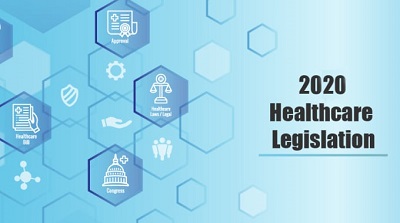Manufacturers Attempt to Limit 340B Access; Senate Bill Aims to Protect Hospitals
 Pharmaceutical manufacturers are attempting to limit distribution of certain 340B drugs, and in response hospitals are asking the Department of Health and Human Services (HHS) for help in combatting these moves to restrict access.
Pharmaceutical manufacturers are attempting to limit distribution of certain 340B drugs, and in response hospitals are asking the Department of Health and Human Services (HHS) for help in combatting these moves to restrict access.
On August 21, AstraZeneca announced that it will no longer offer discounted drugs to contract pharmacies as of October 1. In July, Eli Lilly announced that it will also restrict sales to contract pharmacies of certain formulations of Cialis, while Merck and Novartis plan to require contract pharmacies to submit claims data to avoid duplicate discounts. Contract pharmacies are third parties that dispense the drugs acquired under the 340B program. Drug manufacturers are required to offer discounts to hospitals that participate 340B programs in exchange for being able to participate in Medicaid. However, many manufacturers see the 340B program as too big, unregulated, with little benefit to patients. PhRMA has pushed for 340B changes, including to the ability for covered entities to contract with multiple outside pharmacies to dispense drugs that receive 340B discounts.
However, guidance from the Health Resources and Services Administration (HRSA), which oversees the 340B program, issued in 2020 states that a hospital participating in 340B can voluntarily use a contract pharmacy, and that a manufacturer must still sell a drug at a price not greater than the exceed the statutory 340B price.
In October 2019, the Trump administration issued an executive order stating that federal agencies cannot enforce guidance documents unless they are part of a contract amid, and HRSA has said that it does not have the authority under the 340B statute to take enforcement action on requirements that have been established under guidance and will only take enforcement actions on clear 340B violations.
Hospitals are asking HHS for assistance in this issue, but advocacy groups are examining all legislative and legal options, hoping HHS steps in and clears up the issue.
Meanwhile, a group of bipartisan senators introduced legislation intended to protect 340B hospitals during the COVID-19 pandemic, as many hospitals are facing financial hardships due to the costs of fighting the pandemic, supplies, and changes in numbers of patients.
A key factor in 340B eligibility for hospitals is the inpatient hospital admissions of low-income Medicare and Medicaid patients. However, because of the pandemic, patient admissions have decreased because hospitals had stopped elective surgical procedures, and patients were often too afraid of exposure to the virus to go to hospitals for other procedures. Because of the reduction in patient admissions, some hospitals may not meet the required inpatient admission threshold to remain in the program for continued participation in the program.
The bill would allow previously eligible 340B hospitals to continue to be eligible for any cost reporting period during the COVID-19 public health emergency.
The bill is co-sponsored by Sens. Rob Portman, R-Ohio; John Thune, R-South Dakota; Debbie Stabenow, D-Michigan; Tammy Baldwin, D-Wisconsin; Ben Cardin, D-Maryland; and Shelley Moore Capito, R-West Virginia.
Hospitals have also sued the Trump administration over plans to cut 30% to payments, and a federal judge agreed with the hospital industry that the administration does not have the authority to institute cuts.
The Centers for Medicare & Medicaid Services (CMS) sent a survey to 340B hospitals regarding the acquisition costs for certain outpatient covered drugs, stating that this is intended to help determine payment amounts for drugs acquired by 340B hospitals, in order to repay such facilities for the payment cuts. Hospitals disagree with this plan, stating that CMS should repay hospitals in full, rather than creating a new system based on the survey.
Source: FierceHealthcare, August 26, 2020